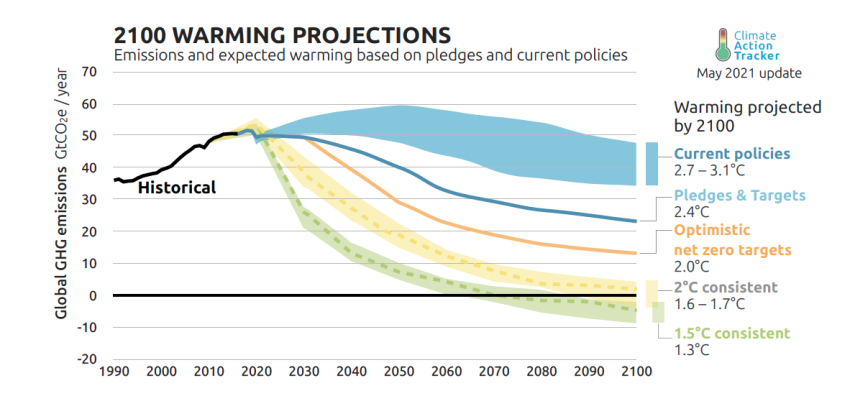
The federal government delivered another budget for the billionaire class that runs Australia and is hell-bent on putting their profits ahead of the climate emergency.
Greens leader Adam Bandt accurately summed up the budget as “a pre-election sweetener that fails to make billionaires and big corporations pay their fair share of tax, while growing inequality and fast-tracking climate collapse”.
“One in three big corporations pay no tax and billionaires increased their wealth by over 30% last year, but instead of making them pay their fair share, this Budget will make the inequality crisis worse,” Bandt said.
“Billionaires get tax cuts and big corporations get handouts, but wages go backwards and job seekers are stuck in poverty.
“In the middle of a climate crisis, [Prime Minister] Scott Morrison is giving $1.1 billion in new money to coal and gas. With a total of $51bn in public money for coal and gas corporations, the biggest in recent memory, this Budget will fast-track climate collapse.
“This Budget should have invested in renewables, in clean and green manufacturing, in improving people’s livelihoods and building up our essential services.
“With this budget, Australia could have become a renewable energy superpower, putting us on a path to generate 700% renewable energy, exporting extra clean energy to the world, but instead the Liberals are giving public money to coal and gas.
“[Treasurer] Josh Frydenberg has served up more than $62b a year in handouts for the ultra-wealthy billionaires and big corporations, and he’s pushing ahead with the $149b Stage 3 ‘tax cuts for billionaires’ package. Billionaires will keep making out like bandits.”
One of the few younger people ABC TV interviewed briefly pinged the budget’s climate criminality.“I think one of the biggest issues [is that] this budget has done nothing to help the climate crisis,” said Sam, who is about to turn 18.
“They are losing potential jobs that could be made in addressing climate change, new energy, public transport and infrastructure,” he managed to say before the ABC interviewer suddenly cut him off.
It was surreal that the ABC presented a budget discussion that ignored the climate emergency.
This downplaying of Australia’s role in the climate crisis comes after the government refused to commit to any new targets at United States President Joe Biden’s “Leaders Summit on Climate” in April.
Morrison told that summit that for Australia, “it is not a question of if, or even by when, for net-zero, but importantly how” and talked up his plan to pour funds into regional hydrogen hubs, gas and carbon capture and storage projects — an untested method to remove carbon from the atmosphere.
Australia’s billionaire class is deeply invested in the extraction and export of fossil fuels. The two richest Australians — Gina Rinehart (with about $36.38 billion) and Andrew Forrest ($29.61 billion) — and their fellow billionaires are hugely invested in fossil fuels, as are the big banks that fund their projects.
Then there are the global fossil fuel corporations that dominate the sector and wield tremendous power: BHP, Glencore, Yancoal, Peabody, Anglo American, Chevron, Whitehaven, Woodside, ExxonMobil and Santos.
Coalition and Labor governments, alike, have done their bidding: the Kevin Rudd Labor government’s abortive attempt to introduce a mining surperprofits tax in 2010 was swiftly punished.
If the specific structure of Australia’s capitalist class explains the climate rogue status of the government, what about those governments that did raise their carbon reduction targets (or promised to do so) at the Biden climate summit?
They still fail the climate emergency test. As the latest Climate Action Tracker’s Warming Projections Global Update points out, even with these new and promised Paris Agreement targets, by the end of this century the world will warm by 1.9º–3.0º C (average 2.4º C).
Assuming the full implementation of the net zero targets by the US, China and other big emitter countries that have been announced, or are being considered, global warming by 2100 could be as low as 2.0°C. But this would still be catastrophic.
Despite all the incredible technological advancements that have made renewable energy sources and storage cheaper and made it possible to run households, cities, industry and agriculture in climate safe way, the capitalist system is still blocking the urgently-needed measures to address the climate crisis.
This is very stark in Australia, but it remains the case, to one degree or another, in every capitalist country.
The climate emergency demands a massive and rapid public investment in everything from a rapid shift to renewable energy, to public transport, carbon neutral homes and other buildings and in agriculture and industry.
There simply is no time left to avoid this, or to allow this shift to remain hostage to the profits of the billionaire class.
Such a massive public expenditure program requires a radical democratisation of the economy. The billionaire class cannot simply be taxed to pay for the changes needed now — not just because it will resist such taxes but also because of the way it runs the economy to multiply its wealth: it is destroying the liveability of the planet.
Of course, we support the call to tax the billionaires because this can be part of building the broad people’s movement needed to fight for real climate action.
Ultimately, however, the economy needs to be liberated from the billionaire class.
[Peter Boyle is a member of the Socialist Alliance National Executive.]